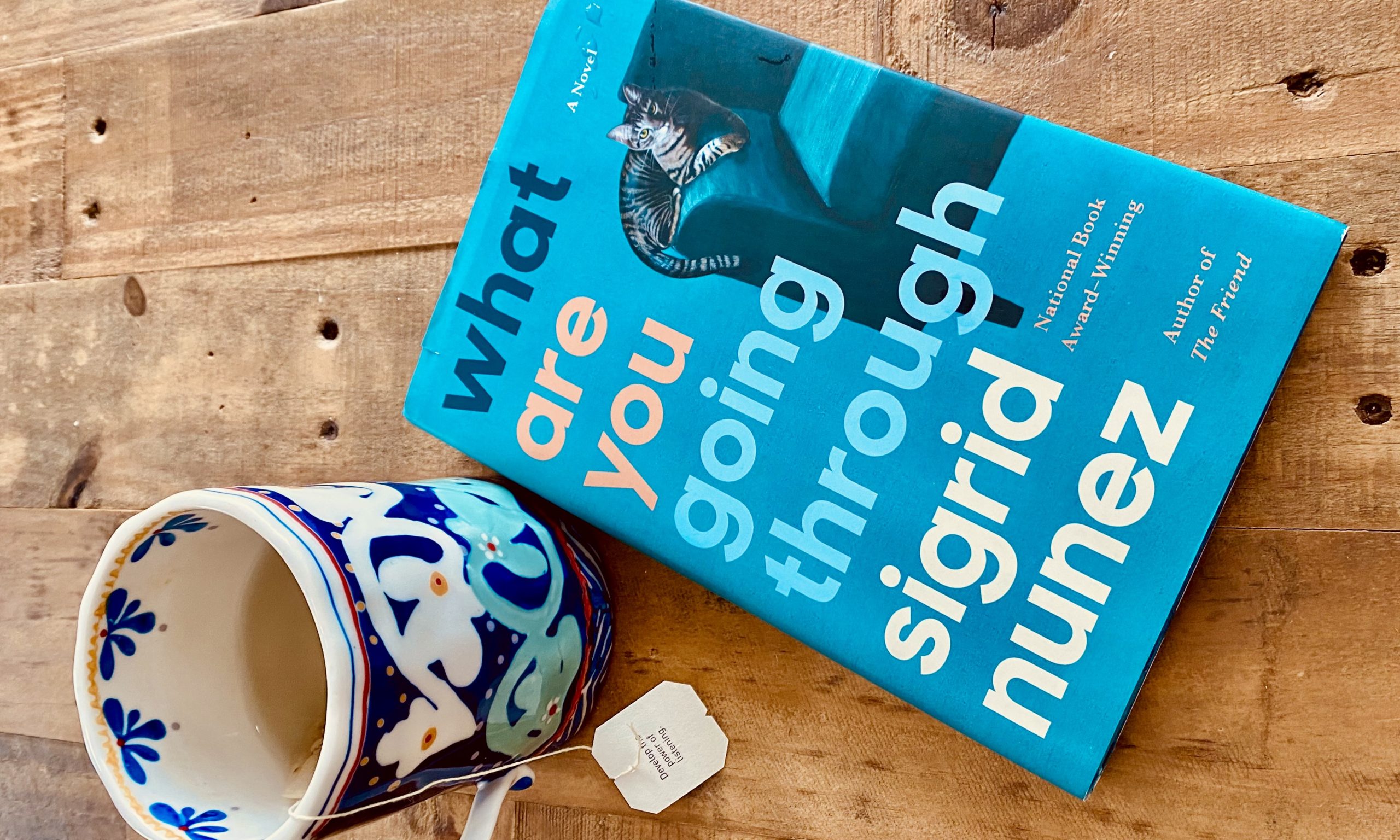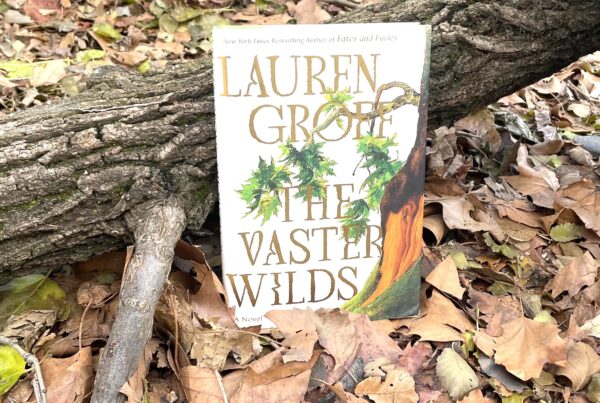Sigrid Nunez’s latest novel What Are You Going Through borrows its title from Simone Weil’s essay Reflections on the Right Use of School Studies With a View to the Love of God: “The love of our neighbor in all its fullest simply means being able to say to him: What are you going through?” This novel – the first to follow Nunez’s National Book Award winning The Friend (which I also recommend) – is a meditation on aging, memory, and companionship.
The novel opens with the narrator – alone in an unnamed town to visit a terminally ill friend – attending a lecture about the imminent and inevitable demise of the world as we know it. The simplicity of the first sentence – “I went to hear a man give a talk,” – sets the tone for this sparse but intimate book on suffering and dying, and the ways in which we attempt to distance ourselves from both through denial, cynicism, and apathy.
While the book meanders a bit in the beginning in an almost stream-of-consciousness (but oddly soothing) way, less than halfway through it takes a deep dive into the narrator’s relationship with her dying friend, her commitment to becoming her end-of-life caretaker, and the intimate bond that forms between them.
Empathy – the core human need to be truly seen and heard – was my greatest takeaway from this book. Nunez, quoting someone who “may or may not be Henry James,” writes: “There are two kinds of people in the world: those who upon seeing someone else suffering think, That could happen to me, and those who think, That will never happen to me. The first kind of people help us to endure, the second kind make life hell.”
In one poignant scene, the narrator’s dying friend relays a story from a cancer support group she attended soon after her diagnosis. She describes another woman in the group who shared that – while still married – her 40 year marriage had been miserable, and she knew her husband was excited for her to die. The other group members interrupted her, telling her she must be mistaken, no one is that evil, she’s imagining it. The woman remained silent, and never returned to the group. “She had spoken the truth….the unspeakable,” the friend says, “and here were all these people, gaslighting her. They could not accept the truth so they had to bury it under a load of BS.”
This made me wonder how many times I have done this – sugarcoat someone’s suffering to avoid my own discomfort.
As the reader I felt like a fly on the wall, a witness to life’s unexpectedly tender and intimate moments. While the subject matter is heavy, Nunez weaves in threads of hope and humor. It is a deep book simply written and almost begrudgingly uplifting, and will leave you with a deeper understanding of what true empathy looks like.




